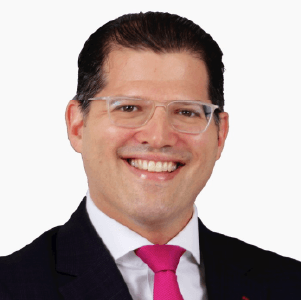Covid-19 has been a trigger for digital acceleration in almost every industry. Technology has forced financial institutions—under mounting pressure from new competitors such as fintechs and large tech companies—to make or propose regulatory, operational and customer-centric changes. In an Economist special report on banking from May 2021, a common thread was the growing rivalry between traditional banks and new digital payment platforms. “A proliferation of payment technologies is upending how people and firms conduct their lives, giving millions of underserved customers previously unimaginable access to finance,” the newspaper observed
Bankers echoed that sentiment in a recent EIU survey, where they were most likely to name payment platforms such as PayPal, Alipay and Apple Pay as the non-traditional industry entrants that represented their biggest competition. Close behind were digital and e-commerce giants such as Google, Facebook and Microsoft. While tech firms have clearly eroded some of banking’s traditional functions, what’s less clear is how bankers plan to respond. Are they altering offers, entering new lines of business, buying technology, lobbying regulators, partnering with potential competitors, or innovating their own technology? How fierce is the competition for talent between banks and tech giants?
Join an Economist Group analyst and three experts as we examine how traditional banks plan to stay in the game.
Questions we will address include:

CTO, WSO2
Eric Newcomer has more than 35 years of industry experience spanning a variety of senior roles in various technology and financial services companies. Before WSO2, Mr Newcomer was chief security architect for the consumer banking division at Citibank, chief architect for treasury and trade services at Citibank, and chief architect for the investment banking division at Credit Suisse.

Global head of innovation and corporate development, payments, J.P. Morgan
Jeremy K Balkin serves as the global head of innovation and corporate development for the payments business at JPMorgan Chase. His team is responsible for identifying growth and investment opportunities for the firm in the fast-paced multi-trillion-dollar global payments universe. The team is headquartered in New York, with local coverage in Asia, Europe and the Americas. He also co-authored the leading payments innovation white paper, “Payments Are Eating the World.”

Co-founder, Kabbage, Inc
Kathryn Petralia is the co-founder of Kabbage, a cash flow technology company for small businesses, now part of American Express. Before co-founding Kabbage, Ms Petralia spent nearly 15 years working with large and small companies focused on credit, payments and e-commerce. An advocate for women in the workplace, a humanitarian and a philanthropist, she was recognised as one of the 100 Most Powerful Women in the World by Forbes magazine in 2017. Ms Petralia serves on the board of CARE.org, PadSplit, Tricolor and the Atlanta Chamber Music Festival, is a member of the Digital Advisory Council at Fannie Mae, and is a trustee for the Woodruff Arts Center in Atlanta.

Head, fintech and ecosystems, DBS
Medhy Souidi has been instrumental in leveraging digital technology to transform DBS Bank into the Digital Bank of Singapore. His StartupXchange programme has matched 100 startups with colleagues across DBS, rolling out more than 50 emerging technology solutions. Mr Souidi himself is big on the fintech scene as a regular speaker at major industry events and a member of the Fintech Association of Hong Kong. In 2019, Asian Private Banker named him Fintech Changemaker of the Year. Tatler recognised him as Gen T, one of the young leaders shaping Asia’s future in finance and technology.

Global head of policy, Plaid
John Pitts is the global head of policy for Plaid, a financial services technology company. In this role, he advocates for consumers' right to access, share and control their financial data. He also advocates for financial data practices based on consumer-first principles of transparency, permission and privacy. Mr Pitts sits on the board of the Financial Data Exchange and is the co-chair of the strategic planning committee. He has consulted on financial data and consumer-protection laws and regulations in the US, Canada, the UK, the European Union and Australia.

Senior economics writer, The Economist
Simon Cox is the senior economics writer at The Economist, based in Hong Kong. He has spent over ten years with the newspaper, including stints in London and Delhi. In 2014, he left journalism to become Managing Director and Asia-Pacific Investment Strategist for BNY Mellon, before returning to the paper in 2016.